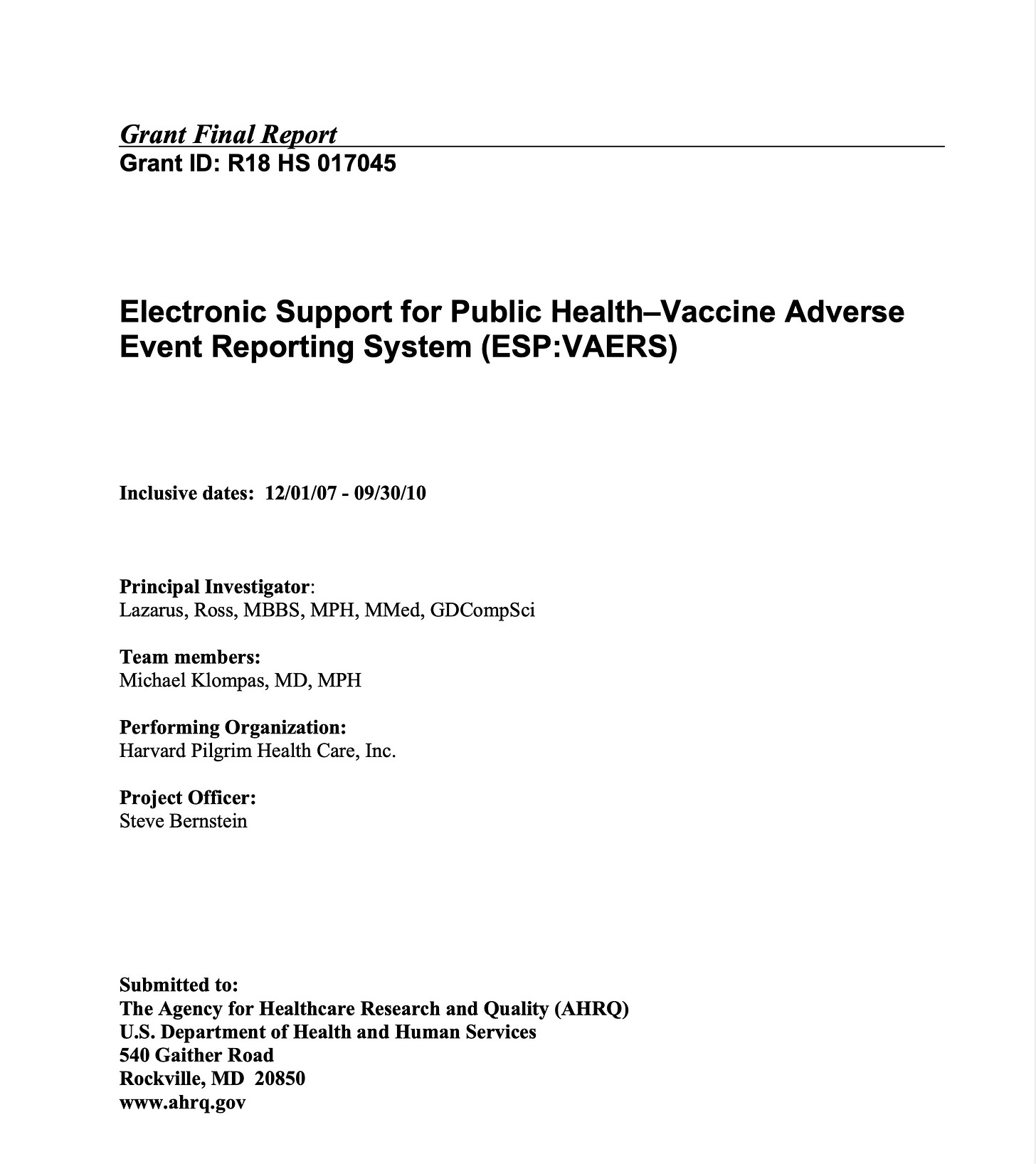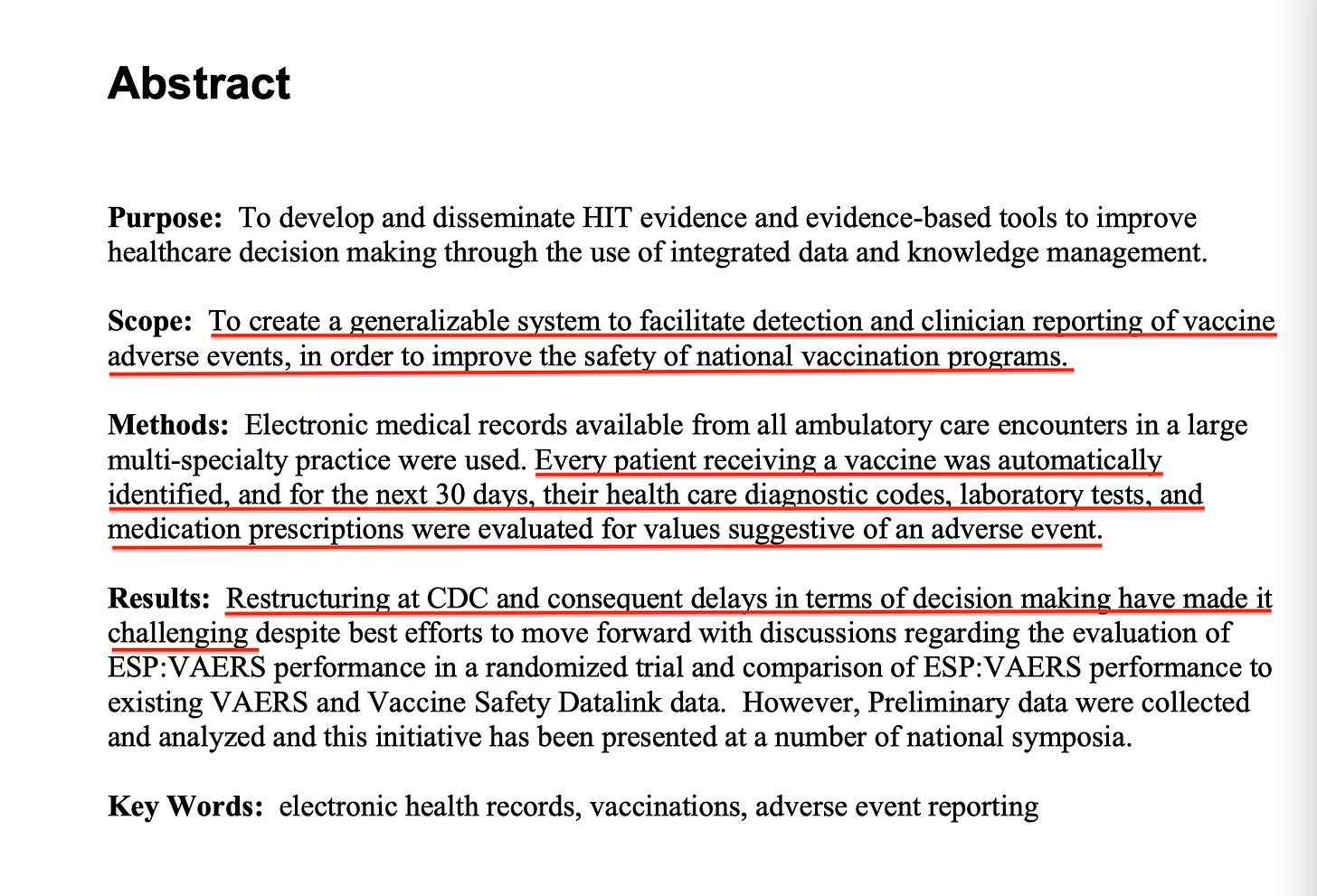Imagine an Adverse Event Reporting system as easy as sending a "crash report" to Microsoft.
The Lazarus, Harvard Pilgrim study: How it should have been done.
Imagine a system that is proactive, automated, & designed to make reporting of adverse reactions in your practice quick & easy.
Well the good people at Harvard Pilgrim Care, under the principle investigator Dr Ross Lazarus did just that, back in 2010.
Most people who are aware of this study know it as the one that found “fewer than 1% of vaccine adverse events are reported” but I want highlight some of the wider implications of this work. Let’s start with the abstract:
This is not the passive, pathetic system we have now. It was not merely active, but proactive: Every patient receiving a vaccine was identified and followed for the next 30 days. If the electronic medical record identified new diagnostic codes, prescriptions or lab tests suggestive of an adverse event the clinician got a prefilled report on the hospital or practice electronic health record.
They could choose to click send, or not. They could add further comments, or not.
From the final report:
“Public and professional confidence in vaccination depends on reliable postmarketing surveillance systems to ensure that rare and unexpected adverse effects are rapidly identified. The goal of this project is to improve the quality of vaccination programs by improving the quality of physician adverse vaccine event detection and reporting to the national Vaccine Adverse Event Reporting System (VAERS)”
It’s also very clear the CDC did not support this effort. Maybe it did not like the results?
“Preliminary data were collected from June 2006 through October 2009 on 715,000 patients, and 1.4 million doses (of 45 different vaccines) were given to 376,452 individuals. Of these doses, 35,570 possible reactions (2.6 percent of vaccinations) were identified”
and in a far cry from adverse events being rare:
“Adverse events from drugs and vaccines are common, but underreported. Although 25% of ambulatory patients experience an adverse drug event, less than 0.3% of all adverse drug events and 1-13% of serious events are reported to the Food and Drug Administration (FDA). Likewise, fewer than 1% of vaccine adverse events are reported. Low reporting rates preclude or slow the identification of “problem” drugs and vaccines that endanger public health.”
I believe this to be the standard of care and it needs to be implemented urgently.
https://digital.ahrq.gov/sites/default/files/docs/publication/r18hs017045-lazarus-final-report-2011.pdf


